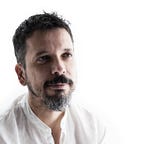Mentoring Stories: Kobe Bryant
In 1998, 20-year-old Kobe Bryant had already made a name for himself as one of the best basketball players in the world. He was the youngest NBA debutant and won the slam dunk contest at his first All-Star Game. However, he was still a twenty-year-old fellow whose one and only obsession was basketball. Unfortunately, that obsession was getting in the way of his performances, raising a few questions about his future.
One summer, while lifting weights in the gym, he heard his cell phone ring. At that time, cell phones were clumsy, heavy and expensive bricks. On the other end of the line, a voice stated, “Hey, it’s Michael Jackson.”
At first, Kobe thought it was a joke and wanted to hang up the phone. But the call was legit, and the young Kobe found himself talking with one of the most known superstars of all time.
On that call, Jackson revealed he was a huge fan of Kobe and wanted to give him some advice. Kobe was not only obsessed with the game of basketball; he was also extremely curious. So, he was all ears.
“Keep doing what you’re doing. Don’t come back to the pack and be normal for the sake of blending in. Don’t dumb it down.”
That was the first piece of advice Michael gave Kobe in that first call. A call that lasted only fifteen minutes but started a lasting relationship. For the next two years, Jackson mentored young Bryant. Together, they watched the films of Fred Astaire and Gene Kelly and listened to the music of the Beatles.
In one of their moments together, Jackson told Bryant, “Your curiosity is your greatest gift. Use it to expand your scope.”
Later, Kobe would share in an interview that for Michael, “Everything he saw — everything in the world — was a library for him. Everything was an opportunity to improve. This is the greatest lesson I took away”.
And that is what Kobe Bryant did.
Ten years later, the Lakers had just lost the 2007–08 NBA Finals to the Boston Celtics, and Kobe felt he needed something more to raise his level of play, something out of the ordinary.
So, he contacted John Williams, a soundtrack composer famous for the Star Wars theme and many others. He also composed the Harry Potter theme, which Kobe used as a lullaby for his daughters. As he learned from Michael Jackson, he wanted to expand his scope and find new opportunities to improve.
“I asked myself a question. What makes a John Williams piece timeless? How is he using each instrument? How is he building momentum? As a basketball player, what I found myself doing a lot was essentially conducting a game, right? I wanted to talk to him about how he composed music, and try to find something similar that I can then use to help my game as a leader and winning championships.”
Williams was understandably surprised.
“The first thing I told Kobe was, I’d never seen a basketball game. High school, college, professional, or television. And of course he laughed.”
Bryant compared the workings of the instruments in an orchestra to that of a team: “They all behave independently of each other, but they all rely on each other to create this timeless piece of music.”
Their mentoring relationship continued for years, so much so that in 2016, Bryant asked Williams to compose the soundtrack for his farewell to basketball short film for which he also won an Oscar.
From his mentor, Kobe learned that it’s better to ask people questions than to tell them what to do if something is wrong. And possibly, not questions he already knew the answers to, but honest questions that would make the person reflect on how to improve.
His exchange with Williams inspired Bryant to work even harder with his teammates to help them become the best version of themselves.
“If you want to help your teammates be better, it’s more than simply creating open shots for them–giving them the ball–you have to inspire them to be the best version of themselves and to think logically about what those steps are.”
Kobe’s Lakers will win the 2008–09 and 2009–10 championships.
The mentor does not have to have direct experience in the mentee’s field to become a gift in their life. On the contrary, diversity often harbours enormous growth potential, as Kobe Bryant’s mentoring stories demonstrate.
“Similarities bring us together, but it is our differences that make us grow.” — Rossella Pin, founder of MentorLab
Sources:
- https://www.fastcompany.com/40492491/what-kobe-bryant-learned-from-his-new-mentor-film-composer-john-williams
- https://www.latimes.com/entertainment/arts/la-et-cm-kobe-bryant-dear-basketball-20170902-htmlstory.html
- https://www.businessinsider.com/kobe-bryant-star-wars-composer-leadership-skills-2019-7?IR=T
- https://abcnews.go.com/Sports/kobes-final-hour-advice-king-pop-shaped-nbas/story?id=38371792
